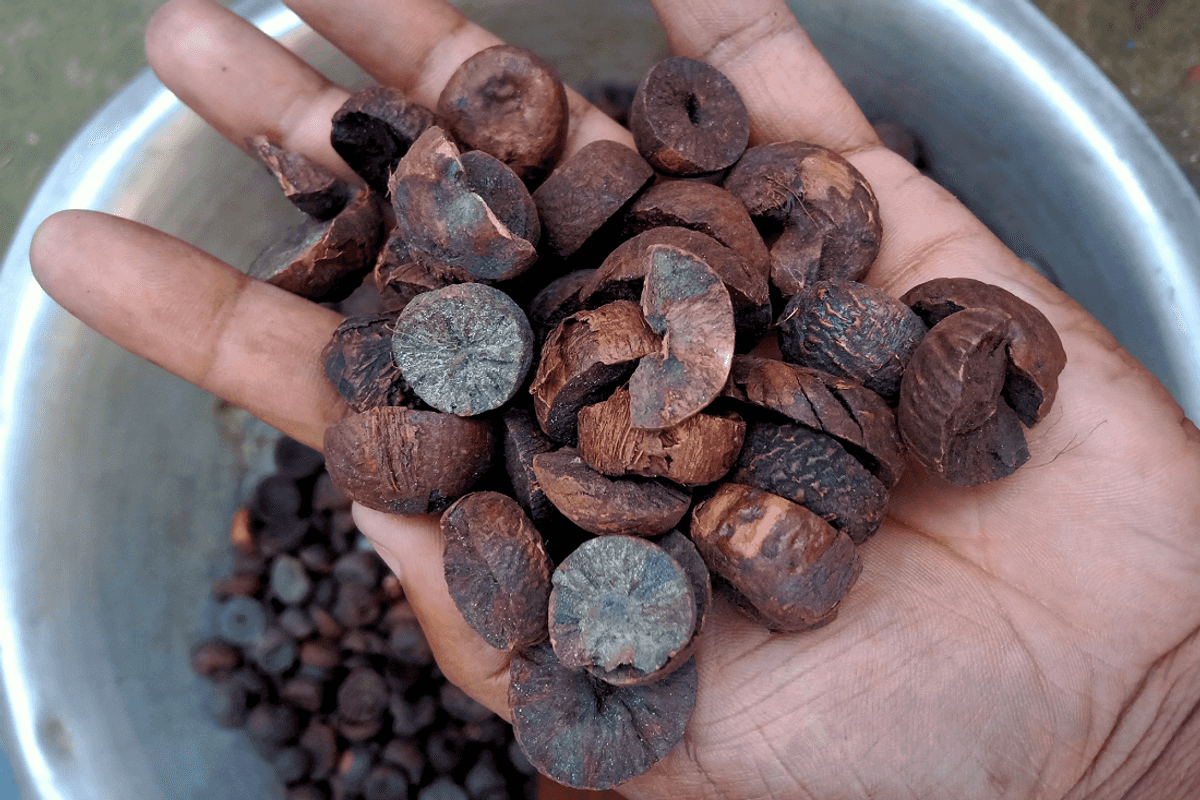Pakistan’s betel nut and ‘gutka’ trade at center of power struggle
Defence minister hints at powerful vested interests in the multi-million-dollar industry, sparking concerns over public health and regulation

Javed Hussain
Correspondent
I have almost 20 years of experience in print, radio, and TV media. I started my career with "Daily Jang" after which I got the opportunity to work in FM 103, Radio Pakistan, News One, Ab Tak News, Dawn News TV, Dunya News, 92 News and regional channels Rohi TV, Apna Channel and Sach TV where I worked and gained experience in different areas of all three mediums. My journey from reporting to news anchor in these organisations was excellent. Now, I am working as a correspondent with Nukta in Islamabad, where I get the opportunity of in-depth journalism and storytelling while I am now covering parliamentary affairs, politics, and technology.

Pakistan’s betel nut imports jumped 433% in a year to 352 shipments, mainly from Indonesia.
Online
A political and bureaucratic tug-of-war has emerged over Pakistan’s booming but controversial betel nut and "gutka" (a chewing tobacco mix) trade, after contradictory laboratory reports triggered accusations of manipulation, corruption and institutional infighting.
Defense Minister Khawaja Muhammad Asif has hinted at powerful vested interests battling over the multi-million-dollar industry, raising fresh concerns about public health and regulatory oversight.
Betel nut consumption and health risks
Betel nut is among the world’s most widely consumed products, particularly in Pakistan, India, and Bangladesh. It is chewed raw in paan, processed into sweetened paste, or crushed into "gutka", a cheap and addictive substance. Health experts warn that substandard or fungus-infected betel nuts contain aflatoxins that cause cancer in humans, while contaminated animal feed can transmit the toxin through milk and dairy products.
In Pakistan, the Plant Protection Department under the Ministry of Food Security is responsible for testing imports and issuing permits for release into the market. But recent developments around one consignment have exposed deep rifts across state institutions.
The controversial shipment
On June 3, 2025, Karachi-based Creditable Business Hub Private Limited imported 26.96 metric tons of betel nuts from Indonesia. Samples were taken in mid-July and sent to the Pakistan Council of Scientific and Industrial Research (PCSIR) laboratory in Lahore.
PCSIR’s initial July 16 report, signed by senior scientists Dr. Sania Mazhar and Dr. Asma Saeed, declared the consignment fit for consumption, with aflatoxin levels recorded at 5.7 ppb—well below Pakistan’s permissible threshold of 30 ppb. However, the report lacked a director’s approval signature, suggesting it was prematurely leaked to the importer.
When the report reached the PCSIR Director General, he rejected it and ordered retesting. Two subsequent tests conducted on July 17 found much higher aflatoxin levels—57.37 ppb and 48.64 ppb—rendering the consignment unfit for public consumption.
Inquiries, allegations and institutional infighting
The importer swiftly petitioned Federal Science and Technology Minister Khalid Magsi, accusing PCSIR officials of corruption and tampering with test results. Magsi ordered a fact-finding inquiry, which in just eight days concluded that the first PCSIR report (5.7 ppb) was accurate and blamed the DG and Principal Scientific Officer Dr. Yasir Saleem for the confusion, recommending disciplinary action.
Meanwhile, PCSIR Chairman Hussain Abidi formed a separate four-member inquiry panel, which is still ongoing. Abidi, currently abroad, has reportedly decided to refer the matter to the Federal Investigation Agency (FIA) to probe the premature leak of the lab report.
At a Senate Standing Committee meeting on August 25, PCSIR defended itself, calling the “5.7 ppb” figure a typing error, insisting the correct value was 57.37 ppb. The committee heard claims of political pressure on scientists, conflicting testimonies about staff medical leave, and warnings from health officials that toxic betel nuts are a known driver of oral cancer and other deadly diseases.
Political overtones and power play
According to sources, Minister Magsi has complained to the Prime Minister about alleged interference by figures linked to a constitutional institution, who were allegedly pressuring laboratories to declare certain shipments fit. This, officials say, has turned the betel nut dispute into a power struggle between the Science and Technology Ministry and PCSIR leadership.
Defense Minister Khawaja Asif has publicly suggested that powerful lobbies, enriched by the "chalia and gutka" trade, are ignoring public health while fighting over profits.
Pakistan’s betel nut import boom
Pakistan’s reliance on imported betel nuts has surged sharply. Between September 2023 and August 2024, the country imported 352 shipments—an increase of 433% year-on-year—mainly from Indonesia. Bangladesh leads globally with 2,596 shipments, followed by India (572) and Pakistan (552).
Within Pakistan, 65 companies import betel nuts, but three dominate: Silver Enterprises (30% market share), Bangash Commercial Industries (15%), and Thai Food Product Co. Ltd. (8%). By contrast, Creditable Business Hub—the firm at the center of the current controversy has little visible presence, with no web portal or public contact information beyond its Karachi office.
Health vs profits
As regulatory disputes deepen, the stakes remain high. With millions addicted to "gutka and paan", Pakistan faces rising oral cancer cases and mounting pressure on its healthcare system. Yet, as Khawaja Asif warned, the fight over this billion-rupee trade appears less about public safety and more about power and money.







Comments
See what people are discussing